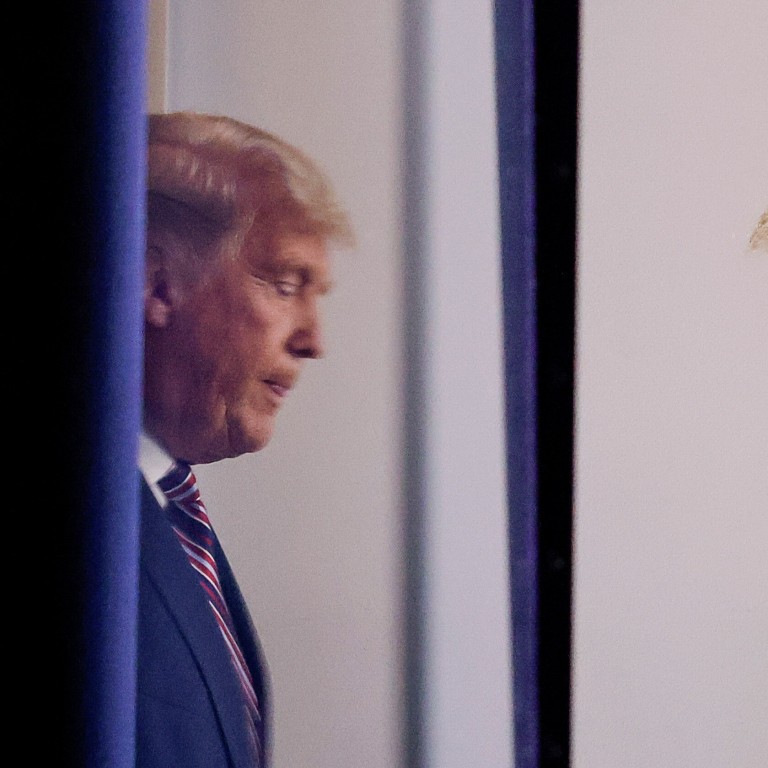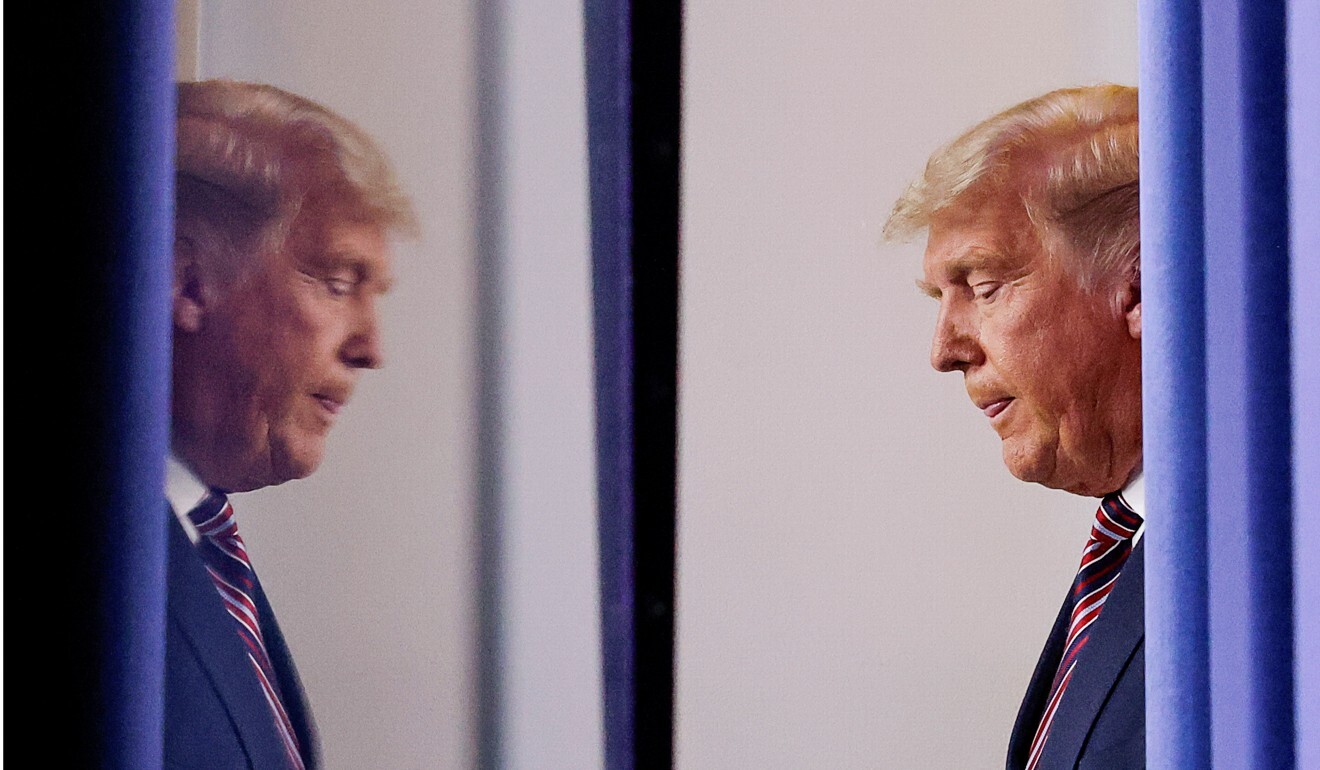
US-China tensions could get worse before the dust settles on presidential election, observers say
- Donald Trump and his top officials may seek to sabotage Sino-US relations, Chinese academic says
- If Trump takes his election grievances to court, it will be difficult for Beijing to establish communication with the Biden team before the matter is settled, international relations professor says
In the months ahead of the election, several Chinese experts expressed concerns that Trump’s China-bashing tactics heralded a dangerous period in the relationship between the two countries and that tensions could reach a peak if the incumbent president lost the White House.
Liu Yawei, programme director at the Carter Centre China, said in August that China-US relations could enter their “most unstable period” between November 3 and January 20, and called on both sides to show restraint on the South China Sea and Taiwan.
Latest US arms sale to Taiwan ‘will help destroy half of any Chinese invasion force’

In the weeks before the US poll, Washington approved three arms deals with Taipei, including the sale of drones, High Mobility Artillery Rocket Systems, and 100 Harpoon coastal defence systems with 400 RGM-84L-4 Harpoon Block II surface launched missiles.
The deals prompted Beijing to threaten countermeasures against Washington and Taiwan, and fears grew that the conflict might spiral out of control.
But Shi Yinhong, a professor of US affairs at Renmin University of China in Beijing, said it was possible that with Trump’s focus firmly on the election there was less chance of a major crisis happening.
“The Trump administration is likely to continue with its super hawkish playbook against China, but as his major focus is on the electoral fight, any surprise move to cause a major crisis is very likely off the table,” he said, adding that any escalation in tensions was more likely to be gradual.
South China Sea missile drills to blame for Taiwanese plane being turned back at Hong Kong, source says
Meanwhile, trade officials from the two countries have also been in regular contact as they seek to keep the phase one deal signed in January on track.
“Biden views China as the biggest competitor to the US, which leaves room for engagement and provides an opportunity for both sides to sit down, lay bare their concerns, negotiate any adjustment to international rules and work out a way to address conflicts”, he said.
Washington will need Japan more than before amid China tensions, Suga adviser says
Pang Zhongying, an international relations professor at Ocean University in Qingdao, said that if Biden’s victory was confirmed, Trump’s power would be reduced, though that did not mean there would not be any bumps in the road over the next two months.
“As Trump is likely to take his election grievances to court, it will be difficult for China to establish communication with the Biden team before the matter is settled,” he said.
“Doing it in a high-profile manner might be seen by Americans as China siding with Biden, which could be sensitive.”
Shi said China’s policy towards the US was unlikely to change significantly before the new US administration came to power. And if Biden were elected president he would be unlikely to soften America’s China policy as he would have to keep the China hawks in the Democratic Party happy.
Zhu Feng, director of the Institute of International Studies at Nanjing University, said China should execute restraint and refrain from becoming too contentious.
“We need to keep clear-headed to provide no chance for Trump to take extreme measures,” he said.



